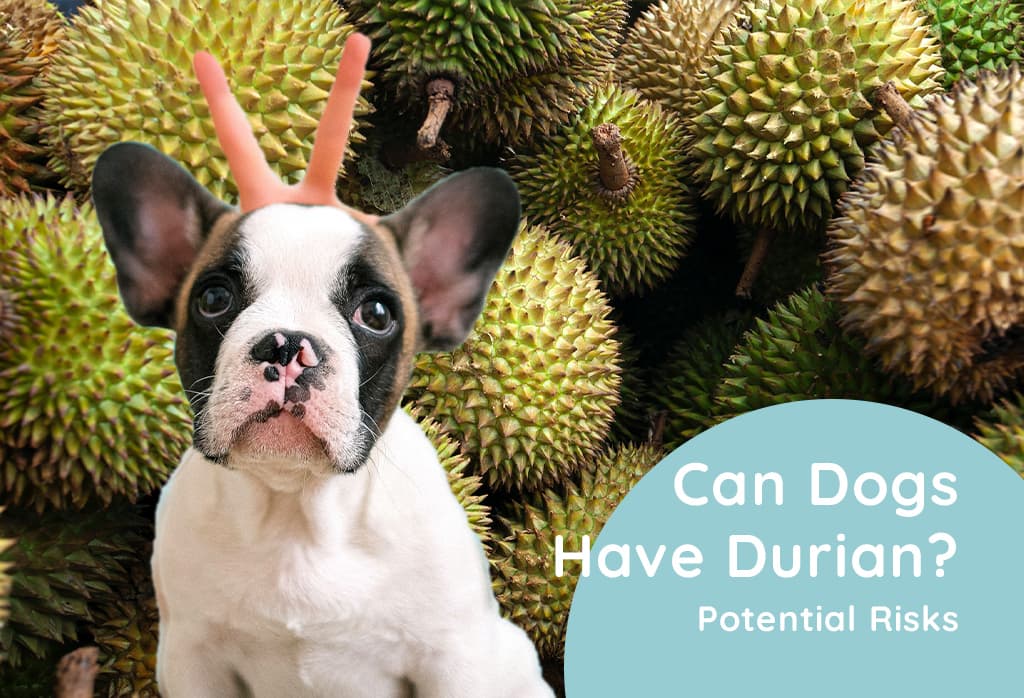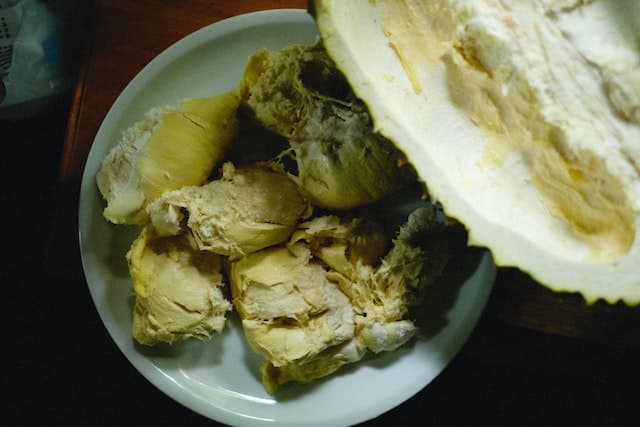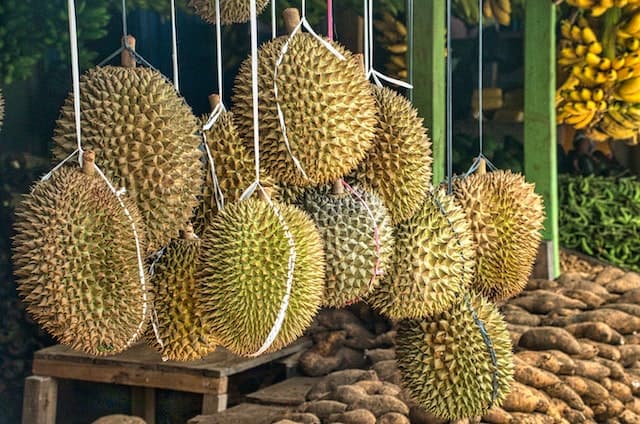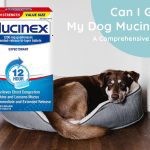This might not be the first thing you think of when it comes to pet care, but it’s important to know what our canine pals can and can’t eat.
One question that might arise is, “Can dogs have durian?”
So, buckle up, because we’re about to embark on a wild, smelly journey into the world of durian and canine nutrition, and discover the difference between what’s safe and unsafe for our four-legged friends to consume.
Can Dogs Have Durian?
Now, let’s get down to the nitty-gritty.
The million-dollar question is: can dogs safely eat durian? The short answer is Yes.
We’ll be tackling potential health concerns, risks, and providing a clear answer.
Trust me; this is a question you’ll want answered before your dog tries to snack on this exotic fruit.
Nutritional Value of Durian
Durian, known as the “king of fruits,” is packed with nutrients like vitamin C, potassium, and fiber.
While it’s true that these nutrients can be beneficial for dogs, it’s important to remember that our furry friends have different nutritional needs than humans.
There are plenty of other ways for dogs to get these nutrients without resorting to durian.
Potential Risks of Feeding Durian to Dogs
Feeding durian to dogs is not without its risks.
Some dogs may experience digestive issues, allergic reactions, or even toxicity from consuming durian.
Pups with pre-existing health conditions or allergies could be at an even higher risk, so it’s essential to consider your dog’s unique situation before introducing any new foods into their diet.
How to Safely Feed Durian to Dogs
If you’ve weighed the risks and still want to try feeding durian to your dog, there are some precautions you can take.
Start with a small amount and keep an eye out for any adverse reactions.
And remember, always consult with a veterinarian before introducing new foods to your dog’s diet – they’ll be able to provide guidance tailored to your pet’s specific needs.
Why You Should Care About What Your Dog Eats
Proper nutrition is the foundation of a healthy, happy dog.
Being mindful of what foods you feed your dog can help prevent potential health issues, maintain a balanced diet, and ensure they’re getting all the necessary nutrients.
What Are the Nutritional Needs of Dogs?
Dogs need a variety of key nutrients for optimal health, such as protein, fat, vitamins, and minerals.
Different types of food can help meet these needs, so it’s important to provide a balanced diet that includes high-quality ingredients.
Related Questions:
What Is Durian?
Durian is a tropical fruit native to Southeast AsiIt’s infamous for its strong, pungent smell and unique taste – some describe it as a mix of sweet, savory, and creamy flavors.
Durian’s spiky exterior hides a soft, custard-like flesh on the inside.
What Are the Health Benefits of Durian?
For humans, durian can provide various health benefits, such as improved digestion, heart health, and immune system support.
However, it’s important to note that dogs have different nutritional needs, and some of these benefits may not apply to them.
What Foods Are Toxic to Dogs?
Some common foods that are toxic to dogs include chocolate, grapes, raisins, onions, garlic, and xylitol (a sugar substitute).
These foods can cause severe health issues or even death, so it’s crucial to keep them away from your furry friend.
Can Dogs Eat Durian Products?
While durian itself may pose some risks to dogs, durian-flavored products or those containing durian as an ingredient may be even more dangerous.
These items could contain additional ingredients that are harmful to dogs, such as artificial sweeteners or other additives.
So, it’s best to steer clear of durian products when it comes to your pup’s diet.
How to Feed Your Dog a Balanced Diet
A balanced diet is essential for your dog’s overall health and well-being.
To create a balanced diet for your dog, consider the following tips:
- Consult with a veterinarian to determine the appropriate amount and type of food based on your dog’s age, weight, activity level, and health status.
- Choose a high-quality commercial dog food that meets the nutritional standards set by the Association of American Feed Control Officials (AAFCO).
- If you’re interested in home-cooked meals or raw diets, consult with a veterinarian or canine nutrition expert to ensure your dog’s diet is nutritionally balanced.
- Incorporate a variety of protein sources, such as chicken, beef, or fish, to provide essential amino acids.
- Don’t forget about healthy fats, like omega-3 and omega-6 fatty acids, which support skin and coat health, as well as brain function.
- Provide a mix of fruits and vegetables for additional vitamins, minerals, and antioxidants – but make sure they’re safe for dogs to consume!
- Avoid feeding your dog table scraps, as they can lead to obesity and nutrient imbalances.
Frequently Asked Questions
Can dogs eat durian seeds?
No, durian seeds can be a choking hazard and are not safe for dogs to consume.
Is the durian smell harmful to dogs?
The durian smell is not harmful to dogs, but it may be unpleasant for both you and your pup.
Can dogs eat other exotic fruits?
Some exotic fruits may be safe for dogs to consume in moderation, but it’s crucial to research each fruit individually and consult with a veterinarian before feeding it to your dog.
Conclusion
So, can dogs safely eat durian? While the fruit itself may not be toxic, the potential risks and health concerns make it a less-than-ideal treat for our furry friends.
There are plenty of other nutritious and delicious options available that won’t put your dog’s health in jeopardy.
If you’re considering feeding your dog durian or durian products, it’s best to consult with a veterinarian first.
They can provide personalized advice based on your dog’s specific needs and help you make an informed decision.
Ultimately, it’s essential to prioritize your pet’s well-being and ensure they’re getting a balanced, nutritious diet.
Happy tails and happy eating!








